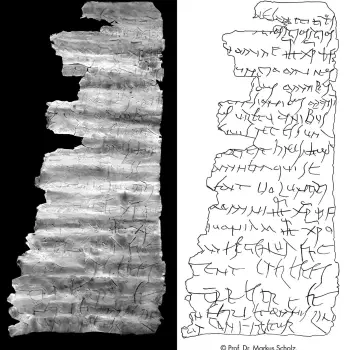 This Fall will be the 500th anniversary of the Protestant Reformation. It began on October 31, 1517, when a 33-year old German Roman Catholic monk and theologian named Martin Luther published his Ninety-Five Theses, also called the “Disputation on the Power and Efficacy of Indulgences.” This document was ninety-five numbered statements. Most of them are one or two lines in length. In them, Luther presents objections and some confirmations of Catholic soteriology as it pertains mostly to indulgences. He declares its purpose as being the basis for him to dispute its statements in public with academics. Thus, he wrote it in Latin and sent it to the Catholic hierarchy. It is believed that Luther nailed this document to the door of the castle church at Wittenberg, a college town where he lived and ministered. But he never admitted that in his writings.
This Fall will be the 500th anniversary of the Protestant Reformation. It began on October 31, 1517, when a 33-year old German Roman Catholic monk and theologian named Martin Luther published his Ninety-Five Theses, also called the “Disputation on the Power and Efficacy of Indulgences.” This document was ninety-five numbered statements. Most of them are one or two lines in length. In them, Luther presents objections and some confirmations of Catholic soteriology as it pertains mostly to indulgences. He declares its purpose as being the basis for him to dispute its statements in public with academics. Thus, he wrote it in Latin and sent it to the Catholic hierarchy. It is believed that Luther nailed this document to the door of the castle church at Wittenberg, a college town where he lived and ministered. But he never admitted that in his writings.
 Today, I read Martin Luther’s “Ninety-Five These.” I don’t recall having read it before. I knew they were mostly about indulgences. But I thought the document refuted indulgences. On the contrary, in it Reverend Martin affirms his beliefs in the Catholic papacy, purgatory, and indulgences. What Luther was doing in this document was mostly to refute the misappropriation of indulgences.
Today, I read Martin Luther’s “Ninety-Five These.” I don’t recall having read it before. I knew they were mostly about indulgences. But I thought the document refuted indulgences. On the contrary, in it Reverend Martin affirms his beliefs in the Catholic papacy, purgatory, and indulgences. What Luther was doing in this document was mostly to refute the misappropriation of indulgences.
Indulgences were payments by Catholics for the pope, and sometimes bishops, to grant remission of penalties for sins in accordance with cannon law. Such indulgences could be made for the payor’s sins or those of another. These payments could pertain to this life; but they regarded mostly an afterlife in purgatory. Indulgences could be good works or imposed sufferings that a living person freely committed to undertake in this life in preparation for conditions in an afterlife during the intermediate state (between death and resurrection). Eventually, indulgences became mostly monetary. The monies first went toward the construction of St. Peter’s Basilica at Rome. Then some were used for the so-called Holy Crusades. In time, kings required substantial portions of indulgences, sometimes over half, in the form of taxes.
Catholic indulgences can be difficult to explain. There are full indulgences and partial indulgences. They can reduce a soul’s suffering in purgatory or even transfer a soul from purgatory to heaven. From the Protestant view and that of many other non-Catholic Christians, these indulgences were a travesty on the Roman Catholic Church that has lasted even to the present time. During Vatican II in the early 1960s, there was movement within the Church to abolish indulgences. But in 1967, Pope Paul VI reaffirmed them, and his two successors did too. Current Pope Francis has expanded the efficacy of indulgences, explaining, “You don’t pay for salvation. It is free!” AMEN!
Most non-Catholic Christians also believe that Catholic indulgences were based on a wrong tradition, which was purgatory. The Roman Catholic Church’s concept of purgatory is based on the idea of the immortality of the human soul. For scriptural support, the Church cites mostly 2 Maccabees, which is not in the Protestant Bible. So, the Church believed that upon human death, that person’s immortal, conscious soul goes to one of three places to await the future resurrection: heaven, purgatory, or hell.
In contrast, Christians of the early centuries of church history did not believe in either the immortality of the soul or purgatory. In fact, the immortality of the soul was a Greek philosophical concept that originated centuries before Christianity with Greek philosophers. They established it in opposition to the Jewish concept of the future resurrection of the human body. New Testament Jewish scholar Alan F. Segal well documents this about the immortality of the soul in his benchmark book, Life After Death: A History of the Afterlife in Western Civilization (Doubleday, 2004).
So, early Christians refuted the concept of the immortality of the soul. Alleging it was a pagan concept, they affirmed the Jewish belief of the future resurrection of the human body. However, many Hellenistic Jews adopted both concepts–immortality of the soul and future resurrection of the human body–and Christians eventually did too. Critics have well argued that a soulish afterlife in heaven logically renders resurrection unnecessary.
During the 10th century, the Roman Catholic Church established All Souls Day. It’s purpose was to focus on deceased Catholics for one day. In the next century, the Church adopted the concept of purgatory as a place where deceased, conscious Catholic souls that had committed unconfessed, venial sins in this life would retire, rather than joining the more pious souls in heaven. In purgatory souls suffer from flames of fire.
When the Catholic Crusades started in that 11th century, popes introduced the concept of indulgences. By Martin Luther’s time, some Catholic clergymen were abusing indulgences. German Dominican friar Johann Tetzel was selling indulgences to living Catholics for the forgiveness of sins they had not yet committed. He is known mostly for his saying, “As soon as a coin in the coffer rings / the soul from purgatory springs.” Luther strongly opposed Tetzel in disputation. In #36 of Luther’s Theses he declares, “Any truly repentant Christian has a right to full remission of penalty and guilt, even without indulgence letters.” Yet Reverend Luther did not negate indulgences; rather, he states in #41 of his Theses, “Papal indulgences must be preached with caution.”
Well, good for Pope Francis in affirming that God’s salvation is a free gift. But I have to say, in my hopefully humble opinion, Catholic indulgences are not only of man and not God, but so are the beliefs upon which they are founded: the immortality of the soul, purgatory, and therefore soul consciousness during the intermediate state between death and the world to come. Rather, the only hope for humankind regarding a future life after death is resurrection unto life. That is a free gift by sincerely believing in Jesus dying on the cross for our sins and us living a life in which we truly can call him “Lord.”
[On 8/26/17, I became informed that the expression “free gift” is a redundancy. Interesting how we are so accustomed to using certain phrases that are redundant without thinking them through. Theology can be like that.]

















